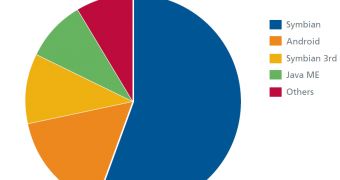The Third Quarter 2011 report issued by McAfee shows some interesting things relating to mobile malware, attack methods, spam and messaging threats and operations launched by hacktivists.
The figures show that mobile malware, especially the one that targets Android platforms increased a lot compared to the previous quarter, the most popular malicious apps used by cybercriminals being the premium rate SMS sending pieces of software.
Fake anti-virus programs, Autorun viruses and account stealing trojans made a strong comeback in the past period. Mac malware is also on the rise and even though the increase is not significant, Apple product targeting threats are slowly starting to make their presence known.
An interesting find refers to botnets, their numbers recording a considerable increase in countries such as Argentina, Indonesia, Russia and Venezuela. Cutwail, Festi and Lethic are considered pack leaders since they caused the most damage.
Also interesting is the fact how a scam's rate of success depends on the region it targets. For instance, in France, phishing scam are the most successful, in Russia, drug spam is the most popular bait, while in the UK, 419 scams still rule. The United States is most often hit by failed delivery notifications, since these seem to cause the most panic among citizens.
When it comes to hacktivism, Anonymous takes the podium, most attacks and data leaks being claimed by the infamous collective's members. More famous targets include Arizona Fraternal Order of Police, Booz Allen Hamilton, Bay Area Rapid Transit, Austrian Police and Goldman Sachs.
“This has been a very steady quarter in terms of threats, as both general and mobile malware are more prevalent than ever,” revealed Vincent Weafer, senior vice president of McAfee Labs.
“So far this year, we’ve seen many interesting yet challenging trends that are affecting the threat landscape, including heightened levels of sophistication and high-profile hacktivist attacks.”

 14 DAY TRIAL //
14 DAY TRIAL //